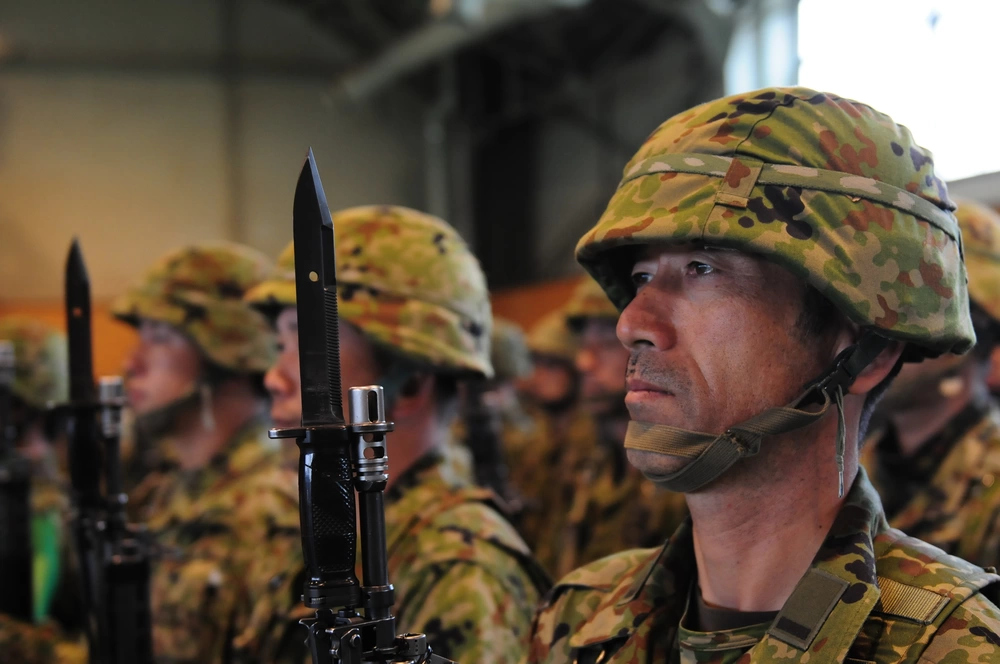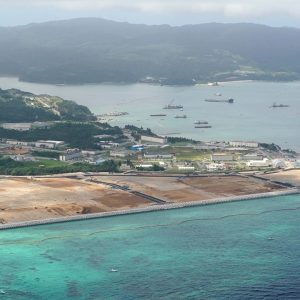In late December of last year, the Japanese parliament approved a 112.07 trillion yen ($787 billion) draft budget for the 2024 fiscal year. Although the aggregate budget is lower than that of the previous year, the defense budget increased by around 16%, with the parliament voting to allocate almost eight trillion yen to defense spending. This follows the government’s goal to eventually reach a ten trillion yen annual defense budget, which would make Japan the third largest spender in defense budget worldwide, behind China and the United States. This expansion in defense spending may come as a surprise considering Article 9 of Japan’s postwar constitution, which renounces war and the maintenance of land, sea, and air forces. Increased tensions in the region and perceptions of domestic politics both seem to be motivating this unexpected move towards military power.

Financing the Increase
These budget increases seem confounding when taking into consideration the stagnant state of the Japanese economy. Japan has been undergoing an economic slowdown for the past few years. Most recently, Germany surpassed Japan as the third largest economy in the world. The Japanese public seems to have taken heed of these conditions: a 2018 Pew Research Center survey found that the majority of respondents were pessimistic about the country’s economy. The same survey found that 76% of respondents believed children will grow up to be financially worse off than their parents. Voters do not feel confident in the economy and its future. For this reason, the government must be wary of spending and explaining the necessity of increased spending. These economic struggles and the public unease surrounding them raise the question of how the Japanese government plans to pay for these budget increases.
Evidently, the politics surrounding military spending plays hand in hand with the public’s perceptions of the economy. Some legislators have proposed increased tax revenues, while others have fought against this due to the potential for public backlash. A poll found that Japanese voters were opposed to increasing taxes to support military expenditure, indicating that the public’s support of defense spending depends on how the government plans to pay for it. However, while one may assume that increased defense spending would cause public outcry due to the urgency of improving the economy, polls indicate that the new budget has widespread public support. This suggests that public support for increased military spending does not translate to public support for tax hikes. The data show that citizens would like to expand their military, but they have less interest in paying for it from their own pockets.
Growing Regional Tensions
Although perceptions and trust in the economy immensely impact support for increasing defense spending, perceptions of regional politics also play a key role. To justify increased spending, the Japanese government cites growing tensions with China and North Korea. In anticipation of conflict between China and Taiwan, Japan has allocated a large portion of the defense budget to missiles and air defenses to protect Japan’s southwestern islands. Many supporters of the budget increases also cite these regional tensions as the main reason they support such increased security measures.
The perceptions of the Japanese public regarding defense hinge on the portrayal of urgency and danger in the media around regional tensions. In a poll asking citizens whether they felt their media’s coverage was fair and objective towards news regarding Sino-Japanese relations, less than half the respondents agreed and felt that the media’s coverage was neither objective nor positive. The media’s inflammation of tensions and negative relations likely increase xenophobic animosity among certain groups, namely Japan’s right-wing political community that is especially active in the online realm.
The Role of the Right
Doctor Yoshinobu Tsunoo, lecturer of Media and Cultural Studies at Wako University, explains that the Netto Uyoku (ultranationalist right-wing social media users) have a prominent role in stoking the flames for the growth of the right wing. Professor Tsunoo finds that although extremists might not achieve their political goals directly, their viewpoints slowly corrode and alter the views of the political right. It takes only a couple extremist ideas to spread and normalize xenophobia.
The growth of the Japanese right wing may be connected to an increased urgency surrounding national security. Since the early 2000s, a right wing community known as the Action Conservative Movement (ACM) or Kōdō Hoshu Undō has actively spoken out with xenophobic and anti-Korean statements. Scholars of Japanese domestic politics have identified the connection between growing patriotism and the expansion of such xenophobic rhetoric. Taking these findings into account, the rising xenophobia in the right wing may be fueling support for increased defense spending.
Professor Tsunoo also adds that these xenophobic ideas are often intertwined with a sense of Japanese superiority and the idea of a pure Japanese race. “At the root of the strong anti-foreigner sentiment in Japan is the delusion that the Japanese are ‘pure-blooded,’” he observes. He notes that this sense of pure-blood originates in the nation’s emperor system, under which all emperors have supposedly stemmed from the same bloodline since the dawn of time. This pure-race idea has flooded the Japanese media into the modern day, causing many Japanese people to subconsciously accept their supposed ethnic purity.
This notion seems all too familiar. In fact, as a scholar of history, Professor Tsunoo points out that the idea of ethnic purity is exactly what catalyzed Japanese society to engage in violent imperialism during World War II. It is what allowed Japanese soldiers to see themselves as invincible. The continuance of the emperor system in modern-day Japan allows these ideas of purity to persist, albeit less overtly. After the Japanese defeat, where it was proven that these soldiers were not invincible, the media did not discuss the responsibility of war crimes. This lack of coverage in the media was caused by internal pressures to cover up government mistakes, but also pressures from the US for Japan to become a bulwark against communism in the neighboring Korean War. This continued lack of accountability and education, Professor Tsunnoo says, has allowed the growth of xenophobic military enthusiasts in Japan. Without an accurate memory of war, many still fail to recognize the damage that Japanese military forces have done in the past, both domestically and abroad.
Thus, increased defense spending in Japan comes largely as a result of increased political tensions in the region, and the domestic response to these tensions has played a crucial role. The media’s consistent portrayal of these tensions galvanize right-wing groups to rally against foreign powers. Without the memory of war and the continuance of the Japanese pure-blood theory, calls for expanding the military are garnering increasing support. Nonetheless, public support for increased defense spending hinges on perceptions of both the state of the national economy and the urgency and imminent danger of warfare.
Featured Image Source: NARA





Comments are closed.